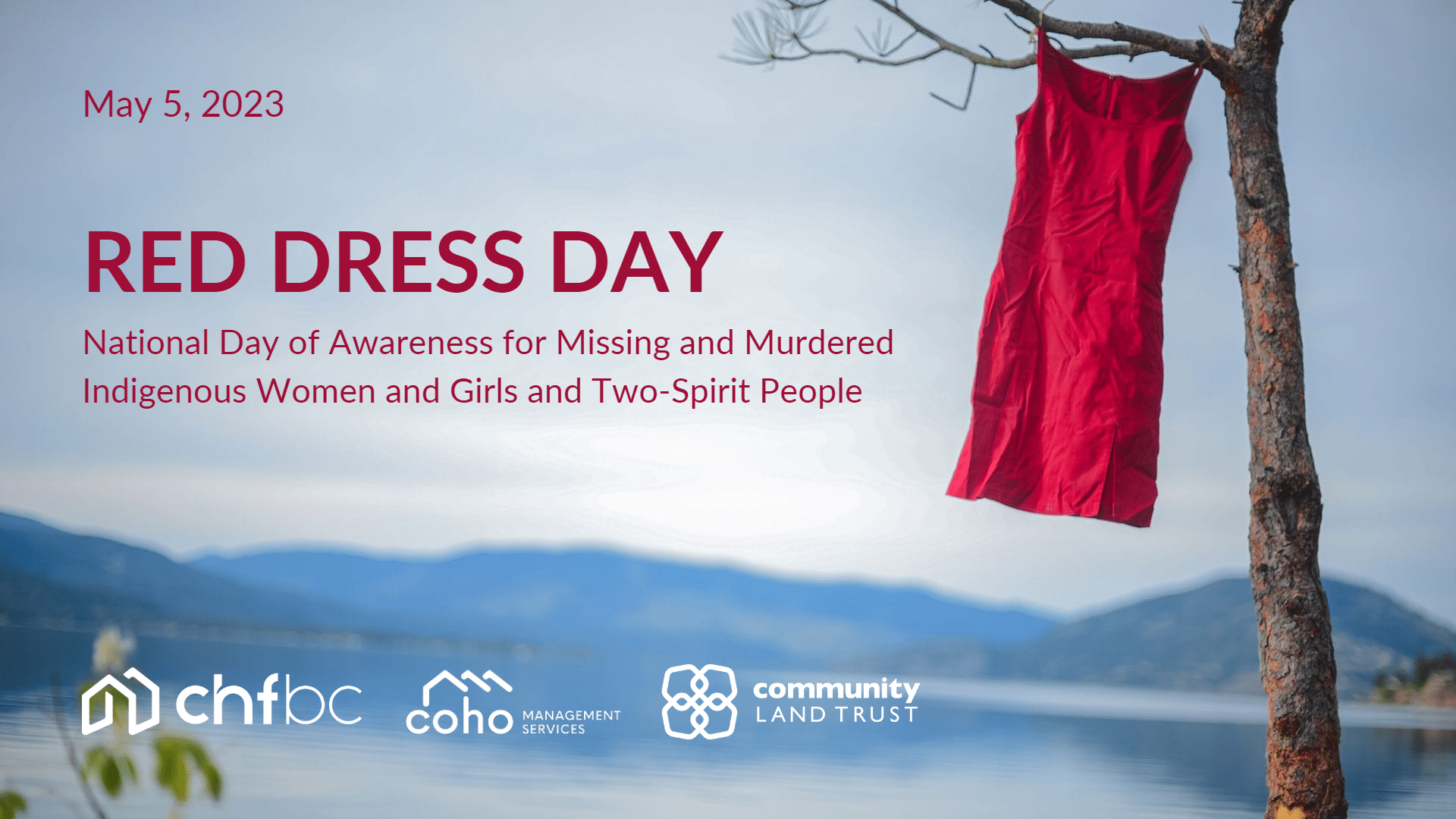
Red Dress Day 2023: How You Can Show Support for #MMIWG2S
Red Dress Day is a day of awareness that takes place on May 5th every year. This day is dedicated to raising awareness of missing and murdered Indigenous women, girls, and Two-Spirit people (MMIWG2S) in Canada. The red dress has become a symbol of this movement, representing the missing and murdered Indigenous women who have been taken from their families and communities.
This is a day to reflect on the devastating impact of racism and colonialism across this land we call Canada. It’s also a day to strengthen our resolve to extend the co-op principle [PDF] of Concern for Community to communities that have suffered injustice and exclusion for too long.
Thom Armstrong, CEO of CHF BC
The idea for Red Dress Day came from the work of Indigenous artist Jaime Black, who created the REDress Project in 2010. The project consisted of installing red dresses in public spaces to raise awareness of the issue. Since then, Red Dress Day has become an annual event, with individuals and communities across Canada participating in various ways.
There are many ways to get involved in Red Dress Day. You can wear a red dress, a red shirt, or a red ribbon to show your support. You can also attend events in your community, such as ceremonies, marches, or vigils, to honor the missing and murdered Indigenous women, girls, and Two-Spirit people.
Additionally, you can learn more about the issue by reading articles and books, watching documentaries, or attending workshops and presentations. It’s important to listen to Indigenous voices and perspectives on this issue and to support Indigenous-led initiatives working to address it.
Overall, Red Dress Day is an important day of awareness and action that helps to honor and remember the missing and murdered Indigenous women, girls, and Two-Spirit people* in Canada.
* Two spirit people: “Two-spirit” refers to a person who identifies as having both a masculine and a feminine spirit and is used by some Indigenous people to describe their sexual, gender and/or spiritual identity.